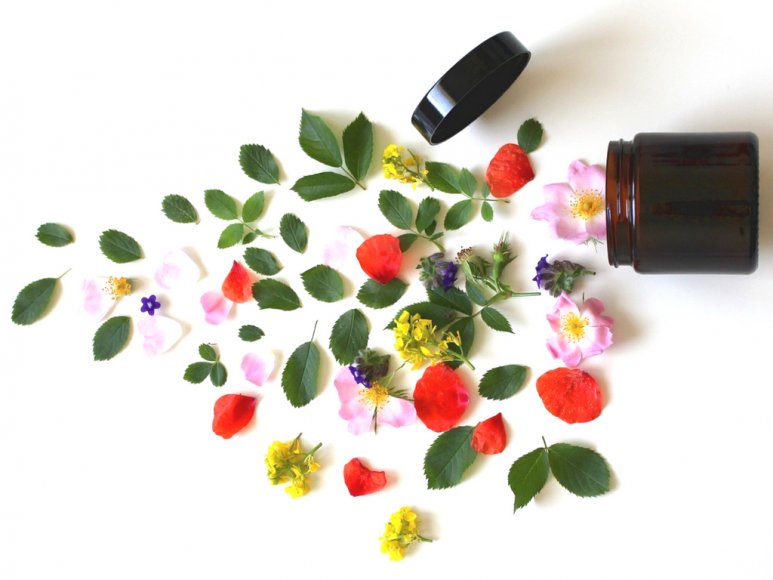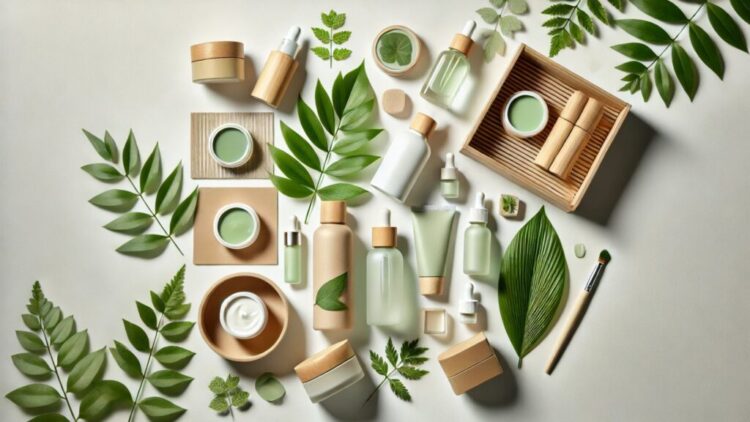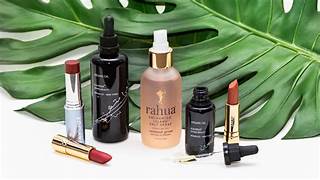The beauty industry is undergoing a profound shift, moving from a focus on fleeting trends to a deeper commitment to sustainability and ethics. Consumers today are more conscious than ever, demanding products that not only perform well but also align with their values. This has led to the rise of a new generation of beauty brands that are proving that you don’t have to sacrifice quality for a clear conscience. This article will delve into what makes a beauty brand truly sustainable and ethical, highlight the key practices to look for, and showcase some of the leading innovators in this transformative space.
Defining Sustainable and Ethical Beauty

Before we explore the brands, it’s crucial to understand the principles that guide them. Sustainability and ethics in the beauty world are not just buzzwords; they represent a holistic approach that considers the entire lifecycle of a product, from its ingredients to its packaging and beyond.
A. Sourcing with Integrity: This is the foundation of an ethical brand. It means using ingredients that are responsibly sourced, such as those that are certified organic, fair trade, or locally harvested. The goal is to minimize environmental impact and ensure that the communities involved in production are treated fairly and paid a living wage. Ethical sourcing also means avoiding ingredients that are harmful to ecosystems, like palm oil from non-sustainable sources.
B. Cruelty-Free and Vegan: A brand is considered cruelty-free if its products and ingredients are not tested on animals at any stage of development. Vegan products go a step further, containing no animal-derived ingredients or by-products whatsoever. This includes things like beeswax, carmine (a red pigment from insects), and lanolin (from sheep’s wool). The demand for cruelty-free and vegan options has surged, and many brands are now certified by organizations like Leaping Bunny or PETA to guarantee their commitment.
C. Eco-Friendly Packaging: This is one of the most visible aspects of a brand’s sustainability efforts. The beauty industry is notorious for its plastic waste. Sustainable brands are innovating with packaging that is recycled, recyclable, reusable, or biodegradable. This includes using glass bottles, aluminum tins, and compostable materials. Some brands have even introduced refillable systems that allow consumers to purchase a durable container once and then buy eco-friendly refills, drastically reducing waste.
D. Carbon Neutral and Climate Positive: A truly sustainable brand is aware of its carbon footprint. Some companies have taken the significant step of becoming carbon neutral by offsetting their emissions through investing in projects that reduce greenhouse gases. Even more ambitious brands are striving to be climate positive, meaning their operations remove more carbon from the atmosphere than they emit. This often involves planting trees, supporting renewable energy projects, or regenerating ecosystems.
The Power of Conscious Consumers

The shift toward sustainable and ethical beauty is not just brand-driven; it’s a direct response to consumer demand. Today’s customers are armed with information and are willing to use their purchasing power to support brands that align with their values.
A. The Rise of Transparency: Consumers are no longer content with vague marketing claims. They want to know exactly what is in their products, where the ingredients come from, and who made them. Ethical brands are responding by providing detailed information on their websites, including full ingredient lists, sourcing stories, and impact reports. QR codes on packaging can even lead to a digital journey showing the product’s origin.
B. Supporting Small and Local: There is a growing preference for supporting small, indie brands that are often more transparent and have a closer relationship with their supply chain. These brands are frequently at the forefront of innovation in sustainable and ethical practices, as they are not burdened by the legacy systems of larger corporations.
C. The Impact on Retail: Major retailers are also adapting. Many are now creating dedicated sections in their stores and online platforms for ethical, clean, and sustainable brands. This not only makes these products more accessible but also signals a fundamental shift in the entire industry’s ecosystem. Retailers recognize that carrying these brands is no longer just a nice-to-have; it’s a business imperative.
Leading the Way: Brands Redefining Beauty
There are countless brands making significant strides, but some stand out for their comprehensive commitment to sustainability and ethics.
A. Aether Beauty: This brand is a leader in clean and sustainable cosmetics, known for its vegan eyeshadow palettes. Its products are formulated without a long list of questionable ingredients, and its packaging is 100% recyclable, from the aluminum pans to the cardboard palette itself. Aether Beauty’s commitment to the environment extends to planting a tree for every product sold, demonstrating a holistic approach to sustainability.
B. The Body Shop: A true pioneer of ethical beauty, The Body Shop has been advocating for cruelty-free practices and fair trade for decades. Their commitment to social and environmental causes is a core part of their brand identity. They continue to innovate with refillable stations in their stores, encouraging a circular economy and reducing plastic waste.
C. Kjaer Weis: This brand brings a luxury approach to sustainable beauty. Kjaer Weis is renowned for its sleek, beautiful refillable metal compacts that are meant to be kept for life. When a product runs out, you simply buy a refill, a concept that elegantly blends high-end design with a strong eco-friendly ethos. Their organic ingredients are a testament to their dedication to both product quality and environmental responsibility.
D. ILIA Beauty: ILIA has become a household name for its commitment to both clean ingredients and high-performance makeup. Their products are formulated with a blend of active skincare ingredients and natural botanicals. They have a strong focus on transparency, providing detailed information about their formulas, and they are constantly working to improve their packaging and reduce their environmental impact.
E. Tata Harper: This luxury skincare brand is a prime example of a company that controls its entire production process. Tata Harper products are 100% natural and made on their farm in Vermont. They grow and harvest many of their own ingredients, ensuring quality and transparency from farm to face. The brand’s commitment to using no synthetic chemicals or artificial fragrances is at the core of their philosophy.
The Future of Beauty: A Sustainable and Ethical Horizon
The beauty industry is at a crossroads, with technology, consumer demand, and innovative brands driving it toward a more sustainable and ethical future. The days of single-use plastics and questionable ingredients are slowly but surely being replaced by a focus on circularity, transparency, and a genuine respect for the planet and the people who inhabit it.
As a consumer, your choices have power. By supporting brands that prioritize ethical sourcing, cruelty-free practices, and eco-friendly packaging, you are not just buying a product; you are casting a vote for a better, more responsible beauty industry. The revolution has already begun, and it’s being led by brands that prove that true beauty is kind, conscious, and sustainable.






